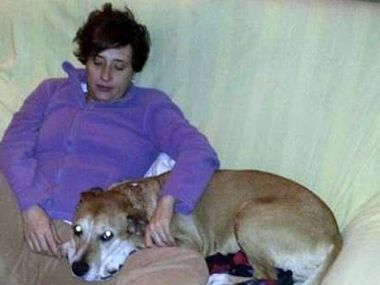Ebola all-clear for Spanish nurse who treated two missionaries killed by the virus

A Spanish nurse who contracted Ebola while treating two missionaries tested negative for the virus on Sunday.
Teresa Romero, 44, was treating missionaries Miguel Pajares and Manuel García Viejo for Ebola when she tested positive for the virus on October 6.
Pajares, 75, became the first European victim of the latest outbreak, dying five days after being flown back to Madrid for treatment.
He contracted the virus while serving at a Catholic-run hospital in Liberia.
García Viejo was a medical director of the Hospital Order of San Juan de Dios and was working in the western Sierra Leonean city of Lunsar when he contracted Ebola. He died days after being repatriated to Spain for specialist treatment.
Romero's dog, Excalibur was controversially euthanized following her diagnosis, angering animal rights activists, while her husband Javier Limon and some medical colleagues at Madrid's Carlos III hospital have been monitored since she became sick. They have so far not shown any signs of infection.
Limon was quoted by CBC as saying: "I am very happy today, because we can now say that Teresa has vanquished the disease."
The couple's friend Maria Teresa Mesa said: "She's doing spectacularly well."
The death toll from the Ebola outbreak in West Africa has surpassed 4,500, according to the World Health Organisation.
The worst-hit countries are Liberia, Guinea and Sierra Leone.
According to a report in the Guardian, one of the ways the outbreak has impacted people is their churchgoing.
At one church in Freetown, Sierra Leone, congregants wash their hands in a bucket of chlorinated water as they enter the building prior to joining hands in prayer.
But some people have stopped attending church altogether. In Liberia, Pastor Amos Teah told the paper that once-full pews are now largely empty.
"These days we go to church, we sing, but we no longer shake hands. We are even thinking about using spoons to serve communion ... to drop the bread into a person's palm, avoiding all contacts with that person. The church has placed strong emphasis on prevention," he said.











